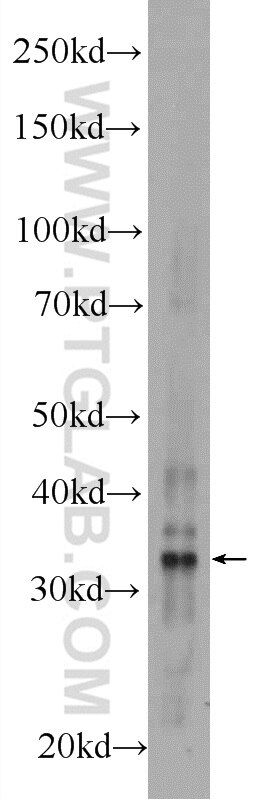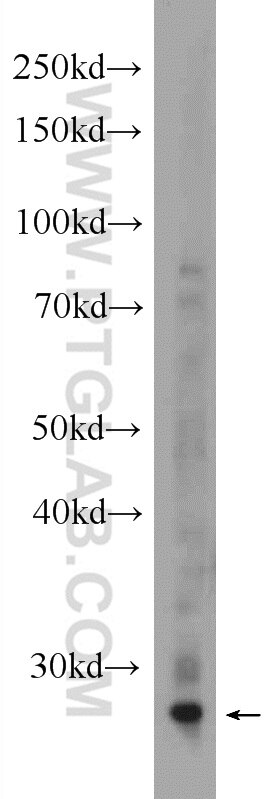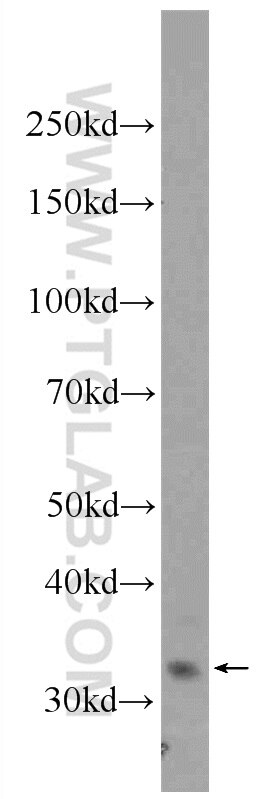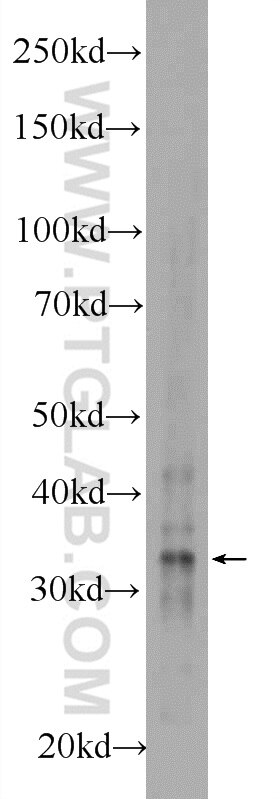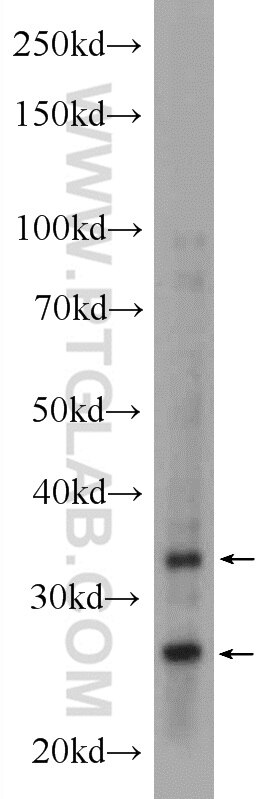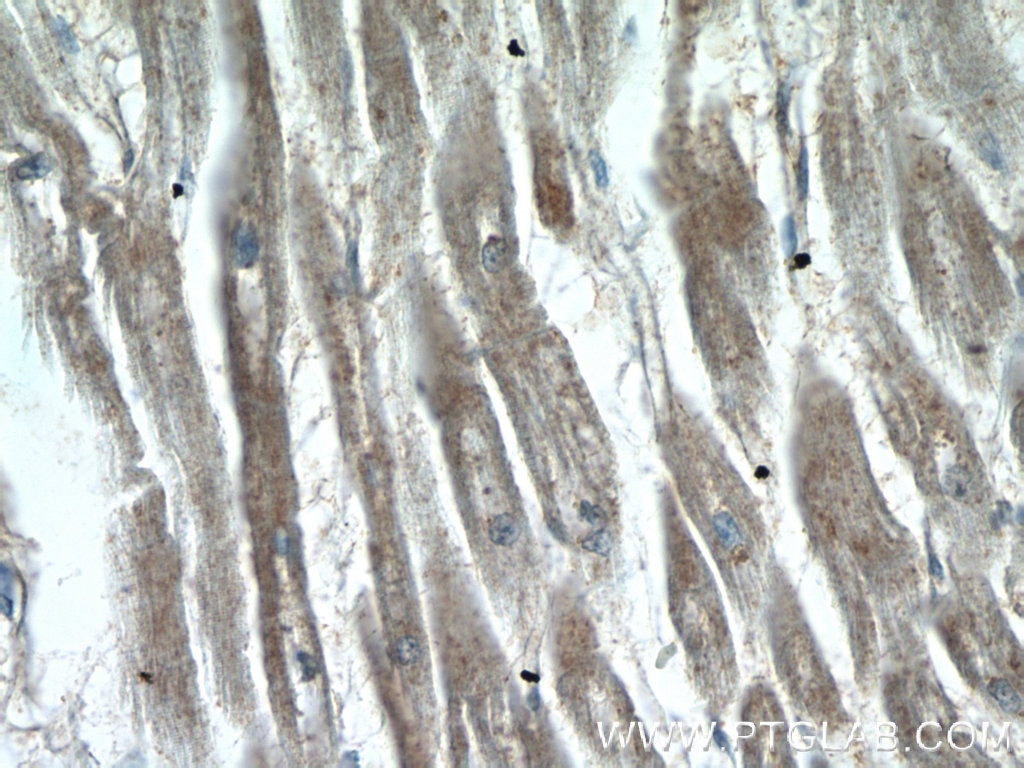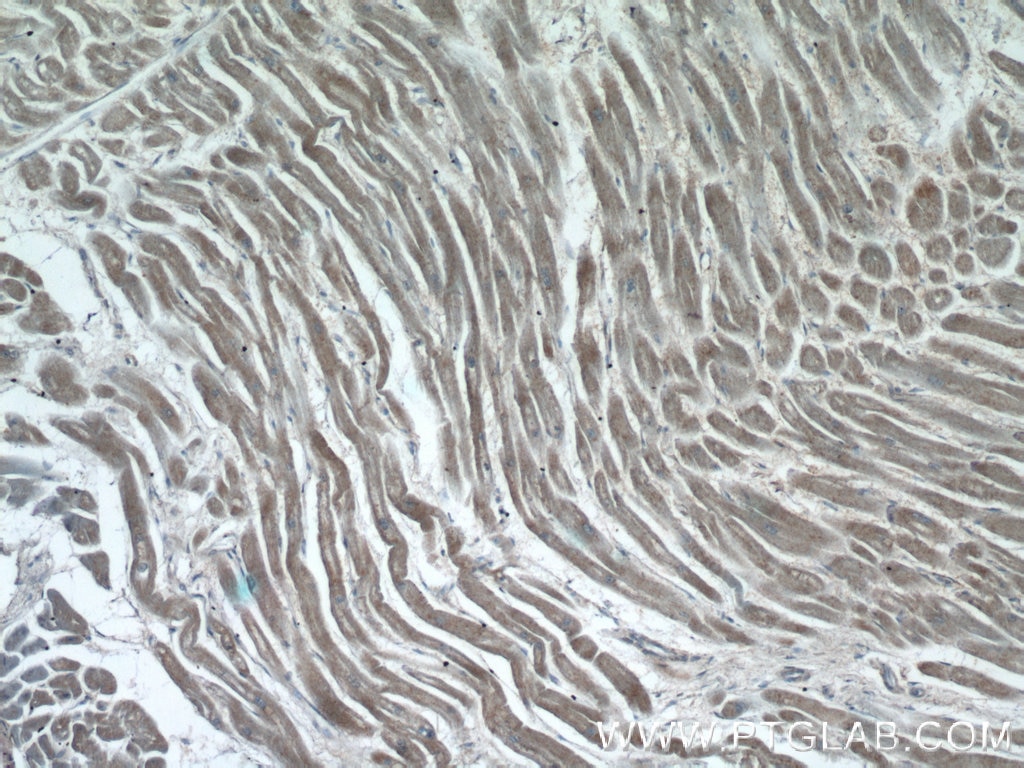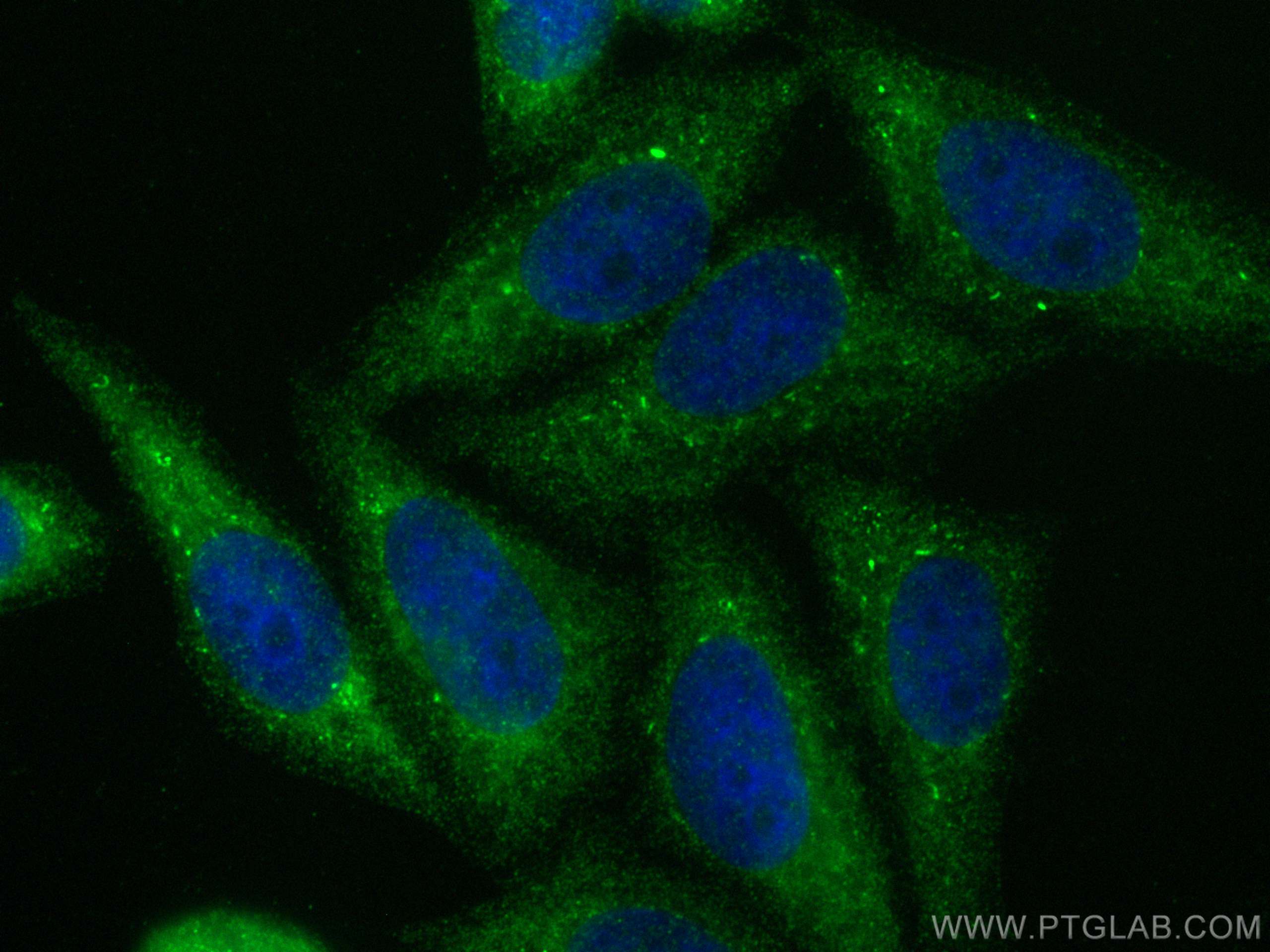Validation Data Gallery
Tested Applications
| Positive WB detected in | mouse liver tissue, mouse brain tissue, rat brain tissue |
| Positive IHC detected in | human heart tissue Note: suggested antigen retrieval with TE buffer pH 9.0; (*) Alternatively, antigen retrieval may be performed with citrate buffer pH 6.0 |
| Positive IF/ICC detected in | HepG2 cells |
Recommended dilution
| Application | Dilution |
|---|---|
| Western Blot (WB) | WB : 1:500-1:2000 |
| Immunohistochemistry (IHC) | IHC : 1:20-1:200 |
| Immunofluorescence (IF)/ICC | IF/ICC : 1:50-1:500 |
| It is recommended that this reagent should be titrated in each testing system to obtain optimal results. | |
| Sample-dependent, Check data in validation data gallery. | |
Product Information
24484-1-AP targets AMZ1 in WB, IHC, IF/ICC, ELISA applications and shows reactivity with human, mouse, rat samples.
| Tested Reactivity | human, mouse, rat |
| Host / Isotype | Rabbit / IgG |
| Class | Polyclonal |
| Type | Antibody |
| Immunogen |
CatNo: Ag20248 Product name: Recombinant human AMZ1 protein Source: e coli.-derived, PET28a Tag: 6*His Domain: 149-498 aa of BC146753 Sequence: DSDRLQLHTDGILSFLKNNKPGDALCVLGLTLSDLYPHEAWSFTFSKFLPGHEVGVCSFARFSGEFPKSGPSAPDLALVEAAADGPEAPLQDRGWALCFSALGMVQCCKVTCHELCHLLGLGNCRWLRCLMQGALSLDEALRRPLDLCPICLRKLQHVLGFRLIERYQRLYTWTQAVVGTWPSQEAGEPSVWEDTPPASADSGMCCESDSEPGTSVSEPLTPDAGSHTFASGPEEGLSYLAASEAPLPPGGPAEAIKEHERWLAMCIQALQREVAEEDLVQVDRAVDALDRWEMFTGQLPATRQDPPSSRDSVGLRKVLGDKFSSLRRKLSARKLARAESAPRPWDGEES 相同性解析による交差性が予測される生物種 |
| Full Name | archaelysin family metallopeptidase 1 |
| Calculated molecular weight | 498 aa, 55 kDa |
| Observed molecular weight | 33 kDa, 28 kDa |
| GenBank accession number | BC146753 |
| Gene Symbol | AMZ1 |
| Gene ID (NCBI) | 155185 |
| RRID | AB_2879565 |
| Conjugate | Unconjugated |
| Form | |
| Form | Liquid |
| Purification Method | Antigen affinity purification |
| UNIPROT ID | Q400G9 |
| Storage Buffer | PBS with 0.02% sodium azide and 50% glycerol{{ptg:BufferTemp}}7.3 |
| Storage Conditions | Store at -20°C. Stable for one year after shipment. Aliquoting is unnecessary for -20oC storage. |
Background Information
AMZ1, also named as KIAA1950, is a new human Zinc metalloproteases. It exhibits aminopeptidase activity against neurogranin in vitro. AMZ1 does not hydrolyze angiotensin-2. It is mainly detected in liver and heart. AMZ1 has some isoforms with MW 55 kDa, 33 kDa, 30 kDa and 28 kDa.
Protocols
| Product Specific Protocols | |
|---|---|
| IF protocol for AMZ1 antibody 24484-1-AP | Download protocol |
| IHC protocol for AMZ1 antibody 24484-1-AP | Download protocol |
| WB protocol for AMZ1 antibody 24484-1-AP | Download protocol |
| Standard Protocols | |
|---|---|
| Click here to view our Standard Protocols |

